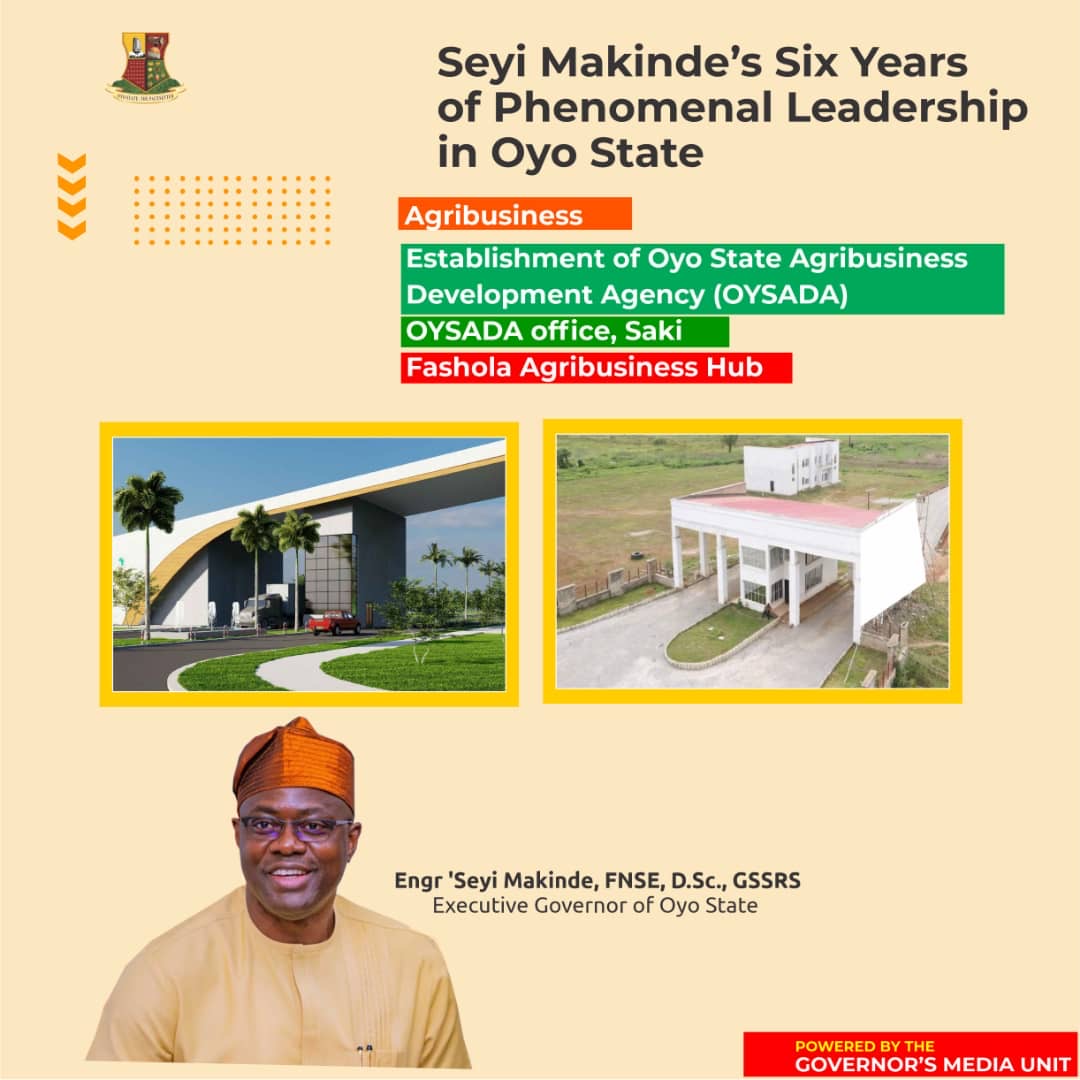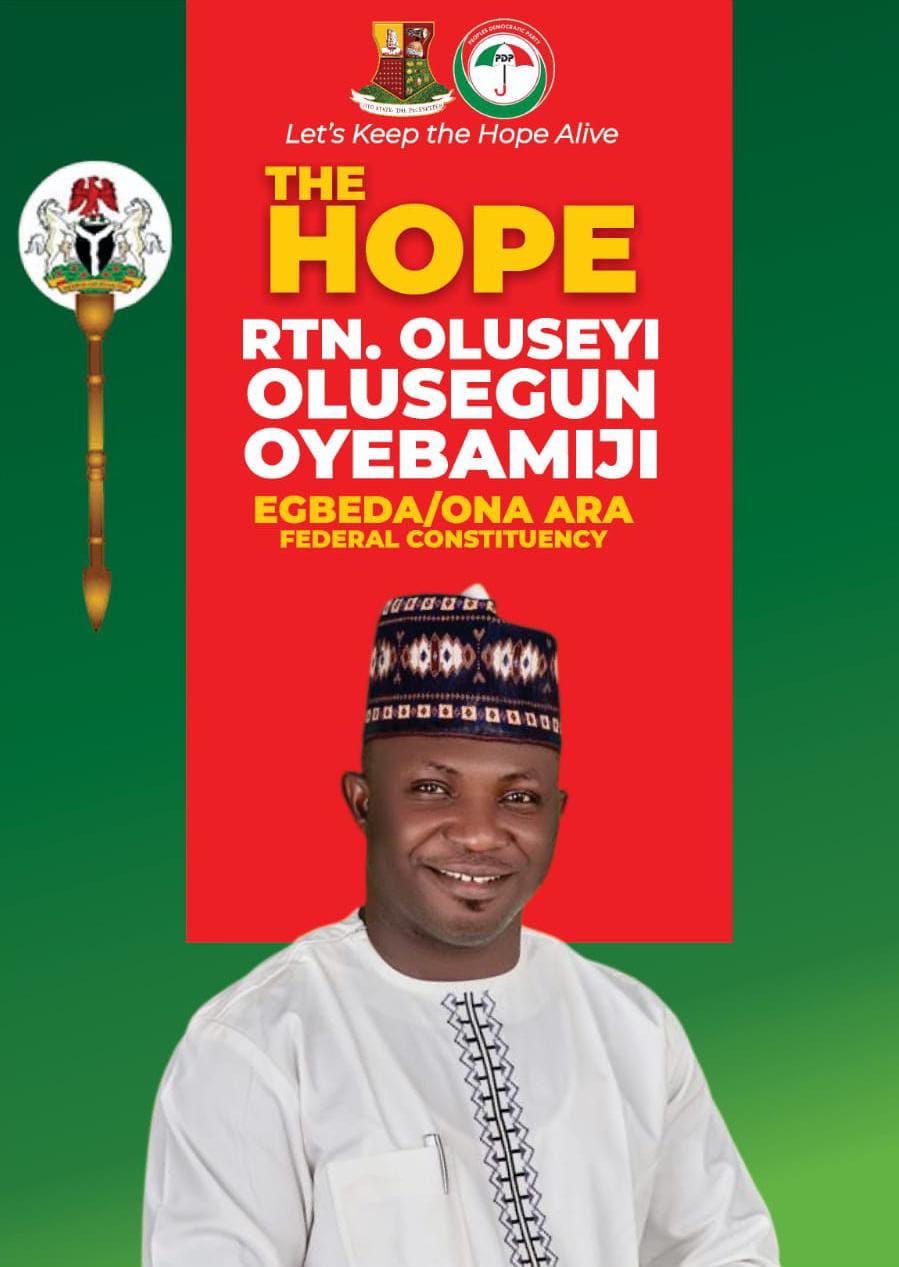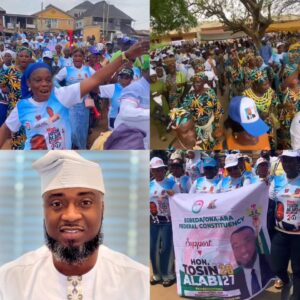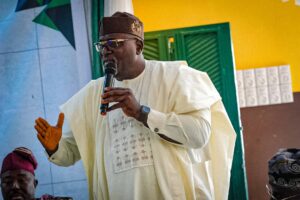








“The purpose of life is not to be happy. It is to be useful, to be honourable, to be compassionate, to have it make some difference that you have lived and lived well.” – Ralph Waldo Emerson

Beyond the noise of power and the glare of publicity, a quiet revolution is taking place in Oyo State; one built not on politics or patronage, but on purpose.
A name is making waves in Ibadan and beyond the shores of the state; Chief Jubril Dotun Sanusi: businessman, philanthropist, and traditional leader, whose approach to change has redefined the very meaning of development at the grassroots.





Sanusi’s journey is not the tale of wealth seeking influence, but of influence seeking impact. Through his initiatives that cut across enterprise, education, and community empowerment, he has steadily built a legacy rooted in sustainability and social inclusion.
From hospitality to sports and education, his work speaks a language the people understand, opportunity, dignity, and hope.
His most visible achievement, Ilaji Hotels and Sports Resort, located in Ona-Ara Local Government Area, stands as a striking embodiment of that philosophy.
Originally conceived as a hospitality venture, it has since evolved into a pulsating hub of economic and social activity, driving local development in ways few private enterprises have achieved.
Within its expansive grounds, farmers find markets for their produce, artisans market their crafts, and young people discover pathways to employment, mentorship, and ambition.
Beyond business, Ilaji Resort has grown into a symbol of youth empowerment and sporting excellence. Its world-class facilities have hosted numerous national and international tournaments, placing Oyo State firmly on the sporting map.
For many young athletes, it has become both a training ground and a springboard, a place where talent meets opportunity and where dreams, once distant, take tangible form.
Sanusi’s latest endeavour, the Ilaji Movement and Running School, is a bold extension of this vision, an initiative designed to nurture physical fitness, teamwork, and discipline among school-aged children.
The project has drawn praise from the National Association of Proprietors of Private Schools (NAPPS), Ona-Ara Chapter, whose chairman, Dom. Olasunkanmi Oluseun Able, lauded it as a “transformative contribution to both education and youth development.” By opening Ilaji’s facilities to schools, Sanusi has redefined the idea of partnership between private vision and public benefit.
What distinguishes the Ilaji Movement and Running School is its philosophy, that education must engage both mind and body. Sanusi understands that the classroom alone cannot produce the leaders of tomorrow.
Through structured sports, young Nigerians learn discipline, leadership, and resilience, qualities that form the moral fibre of any progressive society.
But the true measure of Sanusi’s impact lies not in grand structures or accolades, but in the quieter, humbler acts that rarely make the headlines. His philanthropy is deliberate yet discreet, medical aid for the sick, boreholes for parched communities, scholarships for the underprivileged, and grants for small businesses trying to find their footing.
To him, giving is not charity; it is duty. And in keeping with that belief, he encourages every beneficiary to “pass it forward,” fostering a cycle of compassion that multiplies across communities.
As the Jagun of Ibadanland and Asiwaju of Ona-Ara, Chief Sanusi also bears the weight of tradition with grace. He uses his revered titles not as symbols of status but as platforms for service, promoting cultural preservation, social cohesion, and intergenerational pride.
Through his consistent support for festivals, heritage projects, and community events, he ensures that development and culture coexist, reminding a fast-changing world that progress need not erase identity.
Those who know him describe a man with a long view of life, one who builds systems designed to outlast him. At Ilaji, staff are trained not only for their present roles but for leadership yet to come.
His projects are designed to endure, mirroring his belief that true progress must be institutional, not individual. It is this long-term thinking that gives depth to his favourite maxim: “Plant trees even if you will never sit under their shade.”
That principle defines his life’s work, investing in people and communities not for applause, but for posterity. The results are visible: thriving youths, empowered families, and communities once forgotten now finding their strength.
Chief Jubril Dotun Sanusi’s story is a study in purposeful leadership, a reminder that transformation need not be loud to be profound. In an era where success is too often measured by status, he offers a quieter, nobler alternative: success measured by service.
Through Ilaji and his many silent interventions, he continues to prove that when vision meets empathy, progress becomes inevitable.
His life’s work stands as both mirror and message, that the most enduring change begins not in boardrooms or parliaments, but in the heart of one individual determined to serve.
Segun Kehinde writes from Egbeda






